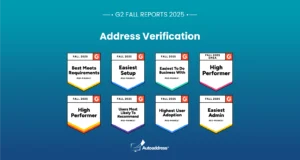
Breaking Language Barriers: Autoaddress’s Transliteration Feature
Breaking Language Barriers: Autoaddress’s Transliteration Feature

The World of Global Communication
In our interconnected world, the ability to communicate and exchange information across language barriers is crucial. This is particularly true in the realm of address data, where accuracy and understanding are key. Autoaddress’s Transliteration feature plays a pivotal role in this global exchange, ensuring clarity and precision no matter the language.
The Challenge: Navigating Multilingual Address Data
One major challenge in international business and communication is dealing with addresses written in different scripts. Whether it’s Cyrillic, Greek, Chinese, or Arabic, the diversity of scripts can pose significant hurdles in data processing and customer engagement.
Autoaddress’s Solution: Seamless Transliteration
Autoaddress’s Transliteration feature effectively bridges the gap between languages and scripts. Here’s how it enhances global communication:
- Script Conversion: The feature converts non-Latin scripts into the Latin alphabet, making addresses understandable and usable for businesses and individuals not familiar with the original script.
- Enhanced Data Accuracy: By transliterating addresses, Autoaddress ensures that the data remains consistent and accurate, which is vital for delivery and location services.
- Improved User Experience: Customers can input addresses in their native script, and businesses can process these addresses without the need for specialized knowledge or systems.
Broad Applications Across Industries
- E-commerce and Retail: Facilitates international transactions and shipping by accurately capturing and converting addresses from customers worldwide.
- Logistics and Supply Chain: Ensures correct location data across different regions, enhancing efficiency in delivery and logistics management.
- Travel and Hospitality: Assists in managing international bookings and customer data, providing a seamless experience for both businesses and travellers
Conclusion: Uniting the World with Autoaddress
In conclusion, Autoaddress’s Transliteration feature is more than just a tool; it’s a gateway to global connectivity. By breaking down language barriers, it enables businesses to operate seamlessly in a multilingual world, enhancing communication, accuracy, and customer satisfaction. Experience the world without language constraints with Autoaddress – where every address is local.

Frequently Asked Questions
Autoaddress's Transliteration feature converts non-Latin scripts, like Cyrillic, Greek, Chinese, or Arabic, into the Latin alphabet. This crucial function allows businesses and individuals to understand and use addresses that were originally in different scripts, facilitating clearer global communication and reducing language barriers in international business interactions.
By accurately transliterating addresses from various scripts, Autoaddress ensures consistent and precise data, crucial for effective delivery and location services. Additionally, it allows customers to input addresses in their native script while enabling businesses to process these addresses without specialized systems, significantly improving the user experience in a global marketplace.
The Transliteration feature has broad applications across several industries. In e-commerce and retail, it facilitates international transactions and shipping with accurate address capture. For logistics and supply chain operations, it ensures correct location data, enhancing delivery efficiency. In the travel and hospitality sector, it aids in managing international bookings and customer data, offering seamless experiences for businesses and travelers alike.




